Digital Literacy
Workshop: Creating Web Maps with ArcGIS Online
Creating Web Maps with ArcGIS Online
Thursday, October 13th, 11:10am – 12:30pm
Online: Register to receive the Zoom link
Susan Powell
Want to make a web map, but not sure where to start? This short workshop will introduce key mapping terms and concepts and give an overview of popular platforms used to create web maps. We’ll explore one of these platforms (ArcGIS Online) in more detail. You’ll get some hands-on practice adding data, changing the basemap, and creating interactive map visualizations. At the end of the workshop you’ll have the basic knowledge needed to create your own simple web maps. Register here
Upcoming Workshops in this Series – Fall 2022:
- The Long Haul: Best Practices for Making Your Digital Project Last
- Copyright and Fair Use for Digital Projects
Please see bit.ly/dp-berk for details.
Workshop: Web Platforms for Digital Projects
Web Platforms for Digital Projects
Monday, October 3rd, 11:00am – 12:30pm
In-Person: Doe 223
Stacy Reardon
How do you go about publishing a digital book, a multimedia project, a digital exhibit, or another kind of digital project? In this workshop, we’ll take a look at use cases for common open-source web platforms WordPress, Drupal, Omeka, and Scalar, and we’ll talk about hosting, storage, and asset management. There will be time for hands-on work in the platform most suited to your needs. No coding experience is necessary. Register here
Upcoming Workshops in this Series – Fall 2022:
- Creating Web Maps with ArcGIS Online
- The Long Haul: Best Practices for Making Your Digital Project Last
- Copyright and Fair Use for Digital Projects
Please see bit.ly/dp-berk for details.
Workshop: Publish Digital Books & Open Educational Resources with Pressbooks
Publish Digital Books & Open Educational Resources with Pressbooks
Tuesday, September 20th, 11:00am-12:30pm
Online: Register to receive the Zoom link
Tim Vollmer
If you’re looking to self-publish work of any length and want an easy-to-use tool that offers a high degree of customization, allows flexibility with publishing formats (EPUB, PDF), and provides web-hosting options, Pressbooks may be great for you. Pressbooks is often the tool of choice for academics creating digital books, open textbooks, and open educational resources, since you can license your materials for reuse however you desire. Learn why and how to use Pressbooks for publishing your original books or course materials. You’ll leave the workshop with a project already under way! Register here
Upcoming Workshops in this Series – Fall 2022:
- Web Platforms for Digital Projects
- Creating Web Maps with ArcGIS Online
- The Long Haul: Best Practices for Making Your Digital Project Last
- Copyright and Fair Use for Digital Projects
Please see bit.ly/dp-berk for details.
Undergraduate Library Fellowship Showcase
The Undergraduate Library Fellowship is a cohort driven program that promotes peer-to-peer learning and mentorship opportunities with the shared goal of improving Berkeley Library services and spaces. Fellows foster connections between the Library’s ecosystem and undergraduate communities by prototyping creative solutions to Library problems. This year, the fellows collaborated in two teams of four, each focused on a certain type of service offered by the Library: Making and Research.
Learn more about their projects by watching their showcase video:
Fellows also reflected on their experiences this year through blog posts. Many of the fellows noted personal growth in collaboration, empathy, receiving and incorporating feedback, and understanding new perspectives. A summary of their reflections is below:
The Making Fellows designed and hosted a workshop to help students discover the Makerspace. Alysa Liu described the Making Team’s process in detail in her post, “we set up stations that featured a specific tool in the Makerspace that they can use to customize their tote bag […] It was really rewarding getting to speak with actual students that were both interested and amazed by the Makerspace since it was completely free and open for any student to use.”Making Fellow Maura Adela Cruz summarized her experience in her post, “[The Fellowship] helped me apply the lesson to observe, empathize, and question, as was discussed in our Makerspace team meetings.” Through her time as a Fellow, Maura’s teammate Chloe Chu learned to embrace the spirit of the Makerspace, writing, “at some point, we reminded ourselves that this process was meant to be messy. It is okay to fail. That is the purpose of iteration.” Christina Park also learned a lesson about iteration, “the feedback at the ULF showcase was a small example of how feedback would be used in a positive, constructive way throughout the fellowship that expanded on any ideas that we brought to the mentors or the research team. This was a valuable part of the process and helped improve the quality and depth of our project.”
Research Fellows iterated on service project ideas, settling on a survey for Student Library Employees in order to better understand the types of questions that students are comfortable asking to their peers. Returning fellow Katherine Chen wrote about the experience of collaborating with her teammates, “working together with the team on our pitch idea was one of the most gratifying experiences of the fellowship for me. I came in with ideas of my own, and when they were introduced to my team members, the ideas were refined and iterated to be even better.” Her teammate Sofia Hernandez reflected that “being open to change and feedback helped our group’s deliverable in the long run” and also helped her to develop her resilience. Margaret Asperheim reflected on the design thinking process, writing that “over the course of this fellowship, I learned that making resources isn’t enough; you have to engage with students to really improve research skills, something that I believe will make a noticeable difference in the way students relate to the library.”
Christina Park cogently summarized the fellowship experience, writing, “ULF emphasizes teamwork, creative thinking, and communication… I think the fellowship was a genuine two-way collaboration between the mentors and the fellows.”
Changed Plans: Focusing Efforts Where They Matter
By Margaret Asperheim, ’22
At the beginning of the Library Fellowship in August, I remember feeling simultaneously excited and unprepared. The Berkeley library system is huge and complicated, as is its system of research resources; how exactly were we going to improve undergraduate research abilities given that all of the resources students could possibly need already existed? Over the course of this year, the Research Team — Katherine, Sofia, Jessica and I — set out to do just that.
When we started brainstorming the ways in which we could improve library resources, we found that we were all in agreement about one thing: we didn’t need to create a new library guide or instructional video. Those resources already exist: the problem is finding them. We quickly latched on to the phrase “point of entry” as a way to describe what we felt students were lacking: not the resources themselves, but the motivation, inclination and know-how to discover them.
So we had a goal. Now, what we needed was a plan. How could we shift students’ ideas of the library from mysterious and overwhelming to approachable and friendly? Further, how could we do it in one semester? We ended up pivoting our proposal several times, from a short, accessible guide to research resources (rejected because it violated our previous stance that enough resources already existed), to a new student research help desk position (way more work than could have been achieved in a semester), to a curriculum for a hypothetical research help desk employee (still too much work), to finally a survey of current student library employees and their opinions about research. We realized that most of our plans featured student peers as a point of entry, and so we decided to take stock of the most obvious student library peers: the circulation desk workers. If undergraduates felt comfortable asking student library workers for help — and if student library workers felt confident giving research advice — we figured that library resources would become much more accessible.
In our survey of student library workers, we included the following questions: do you think you are adequately trained to answer patrons’ research questions? What existing UC Library research resources are you currently aware of? Would receiving training related to conducting/assisting students with library research be beneficial to you as a library student worker? And what library research skills would you like to learn more about? When my fellowship team conducted a survey of current student library workers, we found that 82% of respondents would like to learn more about finding and evaluating sources. Another 64% of respondents mentioned that receiving library research training would be beneficial to them as student library workers.
Over the course of this fellowship, I learned that making resources isn’t enough; you have to engage with students to really improve research skills, something that I believe will make a noticeable difference in the way students relate to the library. Further, because the library staff has limited resources, it makes sense to focus its energies on those resources that already do exist: namely, the student library employees. As a student library worker myself, I know that students feel comfortable asking questions at the desk, but library employee training is generally focused on things like shelving and scanning in books, not on assisting students with research. Overall, I learned how to focus my efforts where they will make the most difference, and not necessarily within my comfort zone.
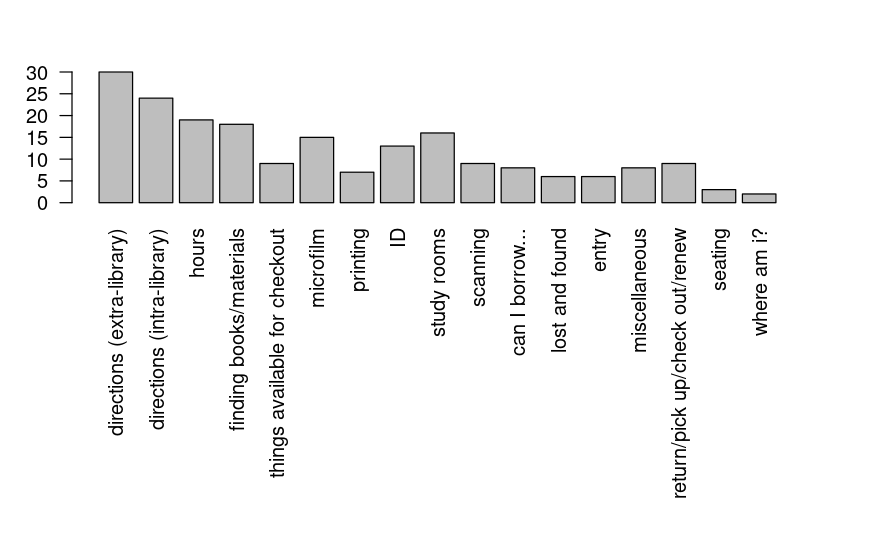
Learning in the Makerspace
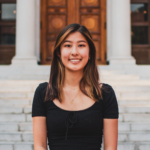
by Alysa Liu ’24
I’m Alysa, one of the fellows that was on the Making Team working on increasing the accessibility of the Makerspace to more students at Berkeley. We wanted to focus specifically on people who identified as students of color, junior transfers, and nontraditional college students. Our deliverable for the end of the semester was a workshop held at the Doe Makerspace in which we brought students from these backgrounds here and taught them how to use some of the tools to customize their own tote bag. Additionally, we collected some key insights through a survey on how this workshop could inform future Makerspace outreach and workshop initiatives that are more accessible for students.
So, how did we get to our final deliverable in the first place? In the beginning of fall semester, my team and I, Maura, Christina and Chloe, first got together to do some user research. We wanted to see how people behaved organically in the Makerspace so we staked out at the first floor of Moffit and, through our observations, noticed that the women and students of color in general felt less comfortable in the space than other students. This informed our problem scope stated earlier: How might we increase the access to the Makerspace for students in marginalized communities?
In preparation for our event, which was going to be held in the newly relocated Doe Makerspace, I created a flyer to spread the word about it. Christina then made sure that it got to our target audiences by asking the Multicultural Community Center, Transfer Student Center, Disabled Students Program, and other similar organizations to include our event in their weekly newsletters. Our marketing brought in over 50 registrations which we were really excited about, but now we faced the problem of how to manage so many participants in the Makerspace at the same time.
During the few minutes before the actual event, we set up stations that featured a specific tool in the Makerspace that they can use to customize their tote bag. All of us were either responsible for a station or worked on gathering survey responses. I personally helped people heat press vinyl-cut designs onto their tote bags. It was really rewarding getting to speak with actual students that were both interested and amazed by the Makerspace since it was completely free and open for any student to use. A lot of them wanted to come back again for future personal projects such as mending clothes, or 3D printing Cal memorabilia.
Through the survey, I saw our qualitative observations become actualized into quantitative observations: over 75% of the people who came to the Makerspace that day had no idea it even existed, while the other 25% had only heard of it before, and everyone said that they would want to come back to keep exploring its services. We also gathered insight as to what times people would be most available to come to workshops, and learned a little bit about people’s general schedules.
In the future, I think the Makerspace can definitely draw from the techniques we used to spread the word about this event to increase campus-wide awareness. I see this as an experiment that played with how we normally hold and spread the word about events at the Makerspace. I also see it as just the beginning of innovating and ideating on what being in the Makerspace at Berkeley will look like in the future. I’m very excited to delve deeper into how we might hold similar events like this to keep bringing new members into our community of Makers.
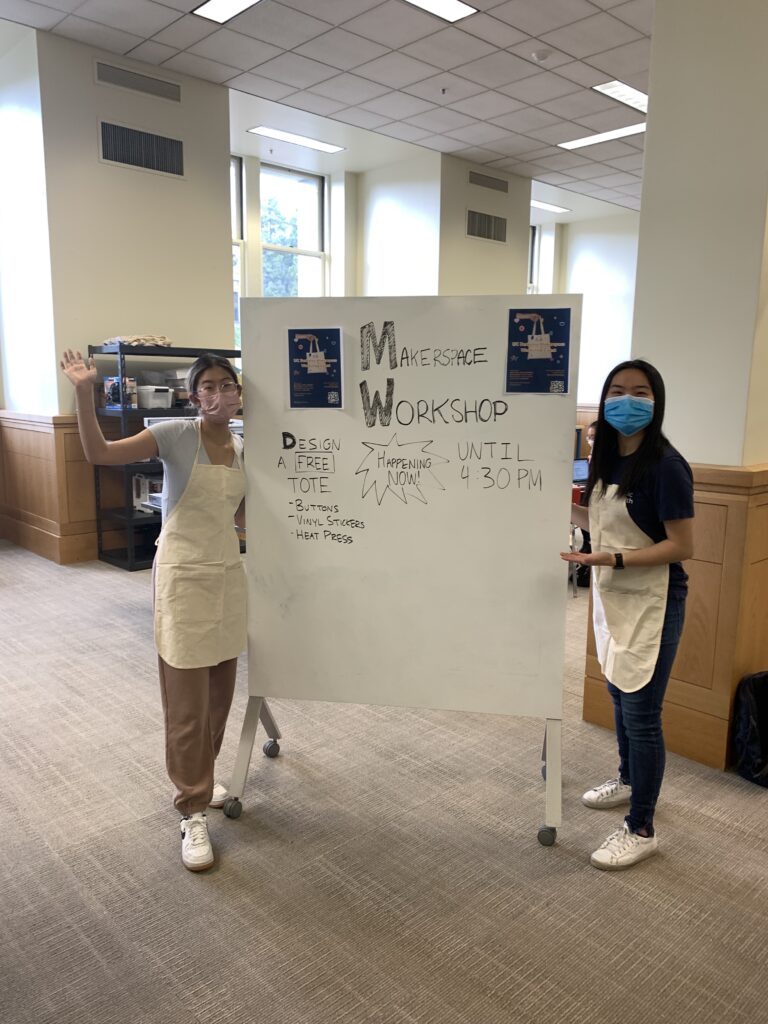
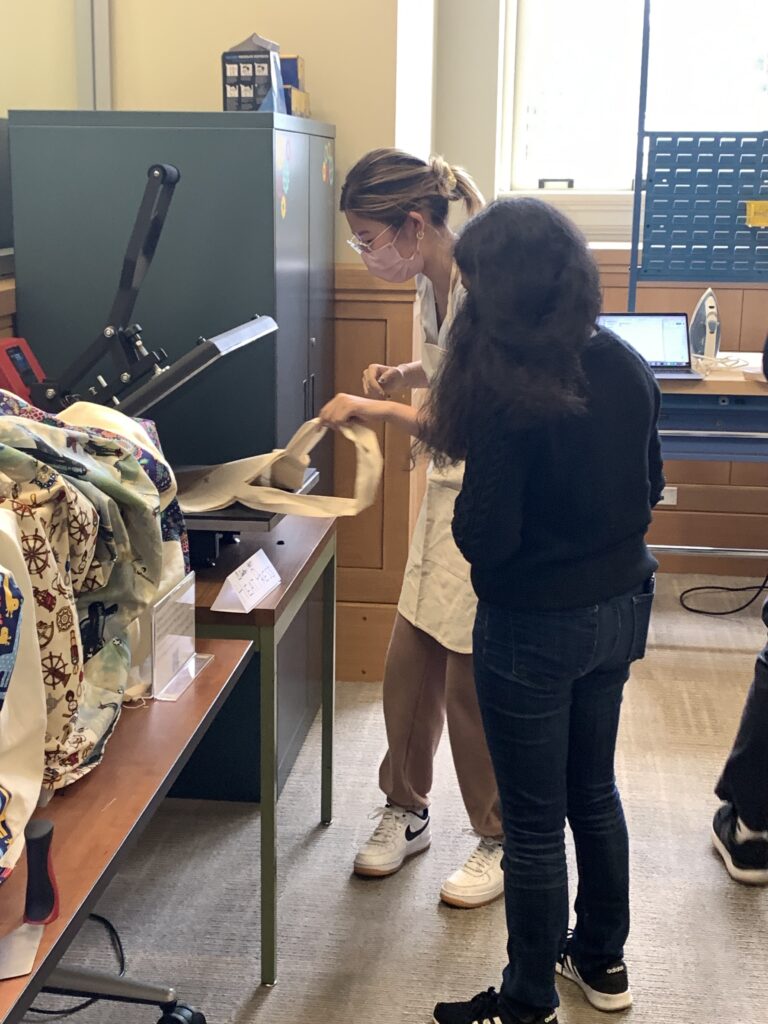
Reflecting on Resiliency: Researching Smarter, Not Harder
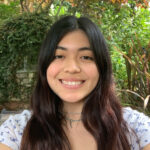
by Sofia Hernandez ’24
During the beginning of the ULF program, all the way back in the beginning of the Fall semester, us fellows were asked to identify and reflect on a gift we believed we possessed and whether we thought we were living a life that honored said gift. Towards the end of my written reflection, I wrote:
“Being at Berkeley has been a difficult adjustment but has [also] proven that I can be resilient in the face of the unknown.”
Throughout my experience within the fellowship program and my overall undergraduate journey so far, resiliency has been a term that I’ve come to closely associate with myself. As a first generation Chicanx student, I’ve experienced first-hand how intimidating and unapproachable the world of academia can be. The obstacles brought forth by the pandemic–remote instruction and the uncertainty towards the future, for example–only further proved that entry points and accessibility are necessary for the success of undergrad students, especially those who have historically been excluded from access to the resources. Within the Research fellowship cohort, we identified this issue and dedicated our project towards serving the undergrad community in finding an entry point to library services through research support.
Our group’s process in workshopping our service project proved to be a test of resiliency. As part of an initial landscape review of the existing research related services at Cal, I participated in a Research 101 workshop to get an overview of what students were learning about research. At this moment in time, our cohort had settled on the idea of creating an in-person peer-to-peer research event where us Research fellows would take alternating shifts throughout the day and provide support for students who were inquiring about research. After the Research 101 workshop, I stuck around to debrief with the mentors and was able to think about the big picture. Our initial idea was admittedly too ambitious considering our one-month time frame, and we hadn’t factored in the amount of preparation needed for the event beforehand which would have included intensive research-related training for the Research cohort to be prepared to answer any and all student questions. In sum, we had aimed for a goal beyond our possibilities unfortunately.
Through talking with the mentors, I was able to take a step back and reengage with our service project. Reimagining our proposed service project instead as a point of reference, I was able to better visualize and identify the steps necessary towards getting there. Being open to change and feedback helped our group’s deliverable in the long run. Instead of having the in-person service event running for this semester, we reasoned that we had a unique opportunity to begin planting the seeds for the future by identifying and capturing what sorts of questions students had regarding research through speaking to student library employees, who have direct contact and interactions with undergrad students on the daily. By figuring out what current library workers were and are experiencing, the Research team would be able to provide the initial research scope that could assist future fellows and even librarians in adjusting their services to better meet the needs of students and provide that entry point.
Resiliency in my undergrad and fellowship experience has allowed for flexibility in the face of unexpected curveballs, from pandemics to prototyping!
Key Takeaways from the Undergraduate Library Fellowship from a Making Fellow’s Perspective
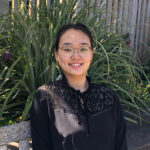
By Christina Park ’23
At the end of the first semester of the Undergraduate Library Fellowship, both the Making Team and the Research Team gave a presentation during a final showcase and received feedback from library mentors as well as past undergraduate library fellows. We showcased our plan and upcoming goals for the next semester, and emphasized that our underlying aim was to promote the Library Makerspace and improve accessibility to undergraduate students. We wanted more students to feel welcome in the space and take advantage of this resource.
We received constructive feedback on our presentation. Not only did we receive comments on how we could have improved details on our presentation, but we heard new ideas and brainstorming which significantly impacted the course of our project. We received suggestions to hold an “open house event” to introduce students to the Makerspace which had just moved from Moffitt to Doe Library, which we later decided to take on as our main project in the spring semester.
Initially, I had thought of “feedback” as synonymous with evaluation, grading, or even criticism. However, the feedback at the ULF showcase was a small example of how feedback would be used in a positive, constructive way throughout the fellowship that expanded on any ideas that we brought to the mentors or the research team. This was a valuable part of the process and helped improve the quality and depth of our project.
After touring and utilizing the space, we noticed that the Makerspace would be in a more prominent position in the Doe library and would be easier to find compared to its old location in first floor Moffitt. Despite my apprehensions that the Makerspace might feel more intimidating and inaccessible in Doe compared to Moffitt, the new Makerspace actually felt warm and open, clustered amongst other resources in the opening of Doe library across from Morrison Library.
One challenge for me was having patience throughout the process. I enjoy taking immediate action and working quickly with an aim of “finishing” in an effective manner. However, this style of work is not always conducive to every project, especially ones which involve creative thinking and brainstorming. In order to publicize the event by submitting the event details, registration link and flyer to different campus organizations and email newsletters on campus I had to wait for all these components to be assembled, and I acknowledged again how impatient of a person I am when it comes to completing my tasks.
Beyond this, we learned how to use small tools to facilitate our communication and collaboration. For example, although initially scheduling meetings seemed burdensome due to our varied and crammed schedules, we learned how to use Google Calendar functions to find mutually convenient times. We also had the opportunity to learn more about ourselves by taking an MBTI test and including it in our introductions in the first orientation meeting, as well as the Clifton Top 5 Strengths Assignment.
ULF emphasizes teamwork, creative thinking, and communication, which are highly coveted and important skills for many different positions. There was a great deal of growth and change in the structure of the fellowship from the first and second semester, and I think the fellowship was a genuine two-way collaboration between the mentors and the fellows. I am grateful for what I have learned throughout the ULF and for the mentors’ adaptability and implementation of new ideas, and I look forward to seeing how the ULF will expand and improve library experiences through the next cohort of fellows.
Learning Through and With Peers
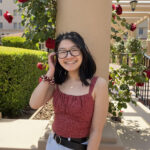
by Katherine Chen ’23
As a second year returning fellow, I had a lot of ideas and knowledge coming into this school year. I had the foundation of knowledge from last school year, and because of that, I had flowing ideas of what kind of projects and services the fellows could work on.
Meeting this year’s fellowship cohort made me even more excited. In the Research Team specifically, we all came from different backgrounds with different knowledge and perspectives that only served to help us refine our project as it went. At the end of fall semester, the team had to present our pitch idea to a group of stakeholders where we would receive feedback. Working together with the team on our pitch idea was one of the most gratifying experiences of the fellowship for me. I came in with ideas of my own, and when they were introduced to my team members, the ideas were refined and iterated to be even better. One of my ideas was to work with New Student Services on GBO curriculum so that all incoming students would have working knowledge about the library. When I introduced this idea to the team, we worked together to refine it to be even better. We workshopped the idea so that it became working together with resource centers at Cal— such as the Career Center, the Student Learning Center, and Bridges— to discern what students knew about the resources the library offered and to provide a fact sheet about library resources so that students could easily find answers to their questions. We all had different backgrounds and knowledge that we brought to the table, and the team’s intersectionality only helped with refining our project.
My biggest takeaway from the fellowship this year is that working in teams and being supported by your team members makes all the difference. I learned so much from my peers whether it be about library or campus services I was unaware of, to new perspectives on issues that I would have never encountered on my own. All the people I have met and learned from through the fellowship have made my experience memorable and worthwhile, and I am so grateful I had the privilege of their presence in my life.
Dealing With Ambiguity: Makerspace Outreach
by Chloe Chu ’22
These past two years have been filled with circumstances which have required us to be flexible, empathetic, and open to change. So, too, as a Library Fellow. As we collaborated together, we were pushed beyond our comfort zones, encouraging us to be more adaptable and understanding. This year, as a member of the Making Team, I had the opportunity to immerse myself in the design thinking process through a service project to make the Doe Makerspace more accessible and equitable for our undergraduate students.
Initially, I was excited to work on the Making Team because it meant we would be in the Makerspace often. Or so I thought. Well, at least it sounded cool. Then, it dawned on me: What is the Makerspace? Where is it located? Who can use it? What can you do there?
I visited the Makerspace for the first time in August 2021. The space was dimly lit, a bit messy, and quite cold but I loved it (there are 3D printers!). We kicked off the year learning about one another and diving into a wallet activity, where we partnered up and explained our ideal wallet to each other. After conducting a brief interview, we had five minutes to design our partner’s ideal wallet. This created excitement as we caught a glimpse of how to approach empathy and design thinking on a personal level.
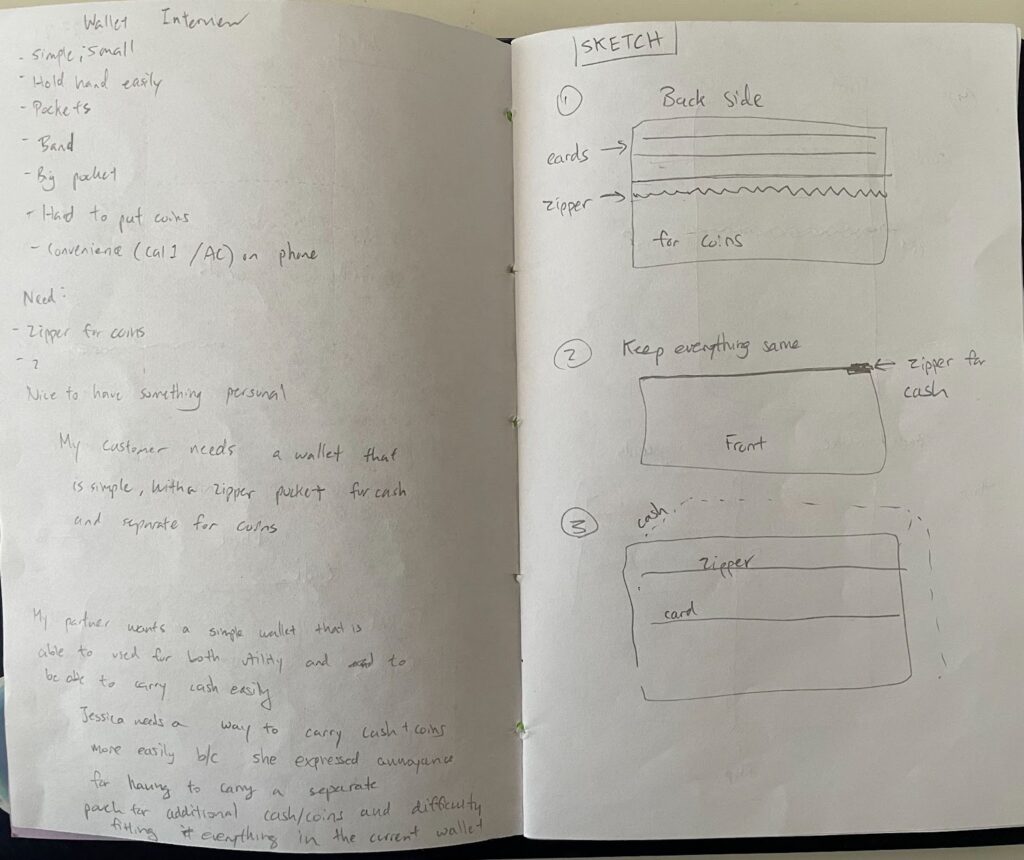
Throughout the fall, I attended each group meeting hoping our mentors would announce our projects and the concrete steps for execution. However, I never received clear answers. Instead, I would learn of one more tool to use in the process, whether that was a concept related to emergent thinking, empathy and awareness, or turning our constraints into creativity. Though frustrating at the time, looking back, the lack of clarity and direction we received was intentional. The ambiguity, complexity and uncertainty challenged us to reimagine the Makerspace with full creativity, without constraint.
Our team came up with our problem statement using the following framework: [Community] needs a way to [user’s need] because [insight]. Our team’s statement: UC Berkeley Library and the Makerspace need a way to encourage underrepresented UC Berkeley students to use the Makerspace because more people should feel that they are welcomed here.
With our problem statement finalized, the Making Team (Alysa, Christina, Maura, and I) set up bi-monthly meetings to work on our projects. These meetings laid the groundwork for our final service project, a Makerspace Open House. However, the road to our event was full of ups and downs. First, it was challenging to be intentional during our team meetings as it was not always clear which stage in the design thinking process we were in. It seemed that our mentors gave us free rein, but we were searching for clear directions. It also felt overwhelming thinking about how we would make the space more accessible for 30,000+ undergraduates. However, in the midst of uncertainty, we learned to pivot and iterate quickly. At some point, we reminded ourselves that this process was meant to be messy. It is okay to fail. That is the purpose of iteration. These reminders inspired us to explore multiple ideas and conduct more user interviews with students. They fueled our next meetings as we revised and finalized details for the Open House. In the end, I was inspired by the incredible success of the event. It was rewarding to see the many hours we invested into the iterative process come to fruition. But more than anything, I learned to take risks without knowing all the details and to embrace change even if it might be initially stressful.

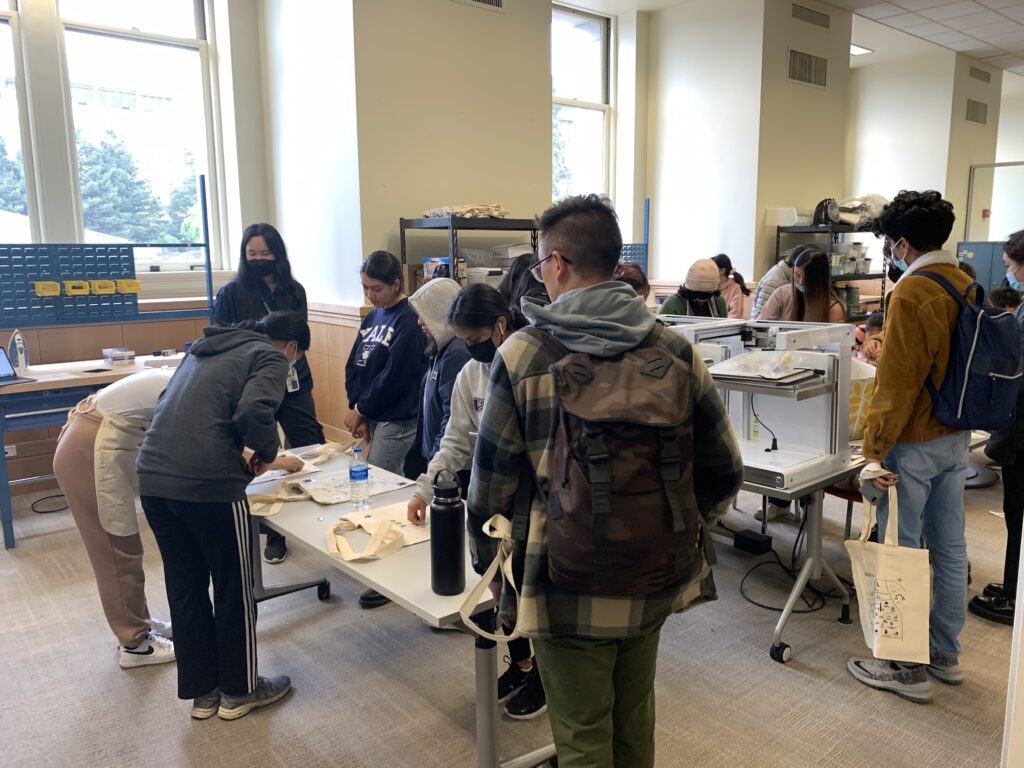
While these years have been challenging academically and personally, they have also grown me in ways I could not have imagined when I first arrived in Berkeley. I’m grateful for the opportunity to serve the Berkeley community as a Library Fellow and I will take the lessons I’ve gathered and apply them to whatever’s ahead in the future. I encourage future Fellows to develop strong relationships with your mentors and teams beyond the fellowship context, lead your meetings with intention, and embrace the process (in all of its messiness) along your journey.
(Photos courtesy of Kiyoko Shiosaki)
